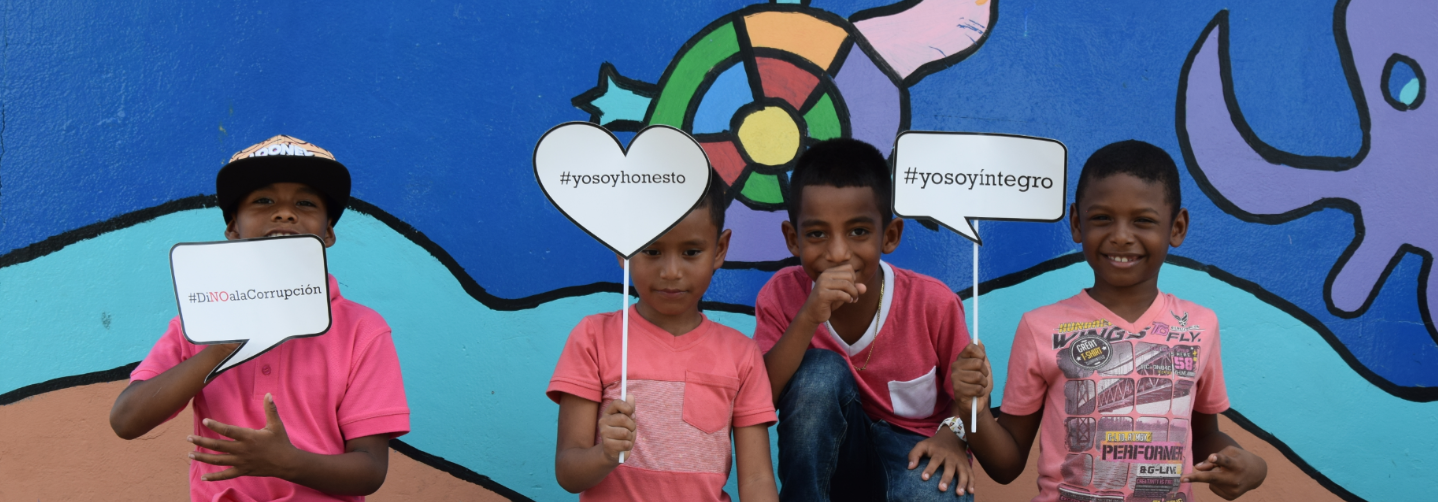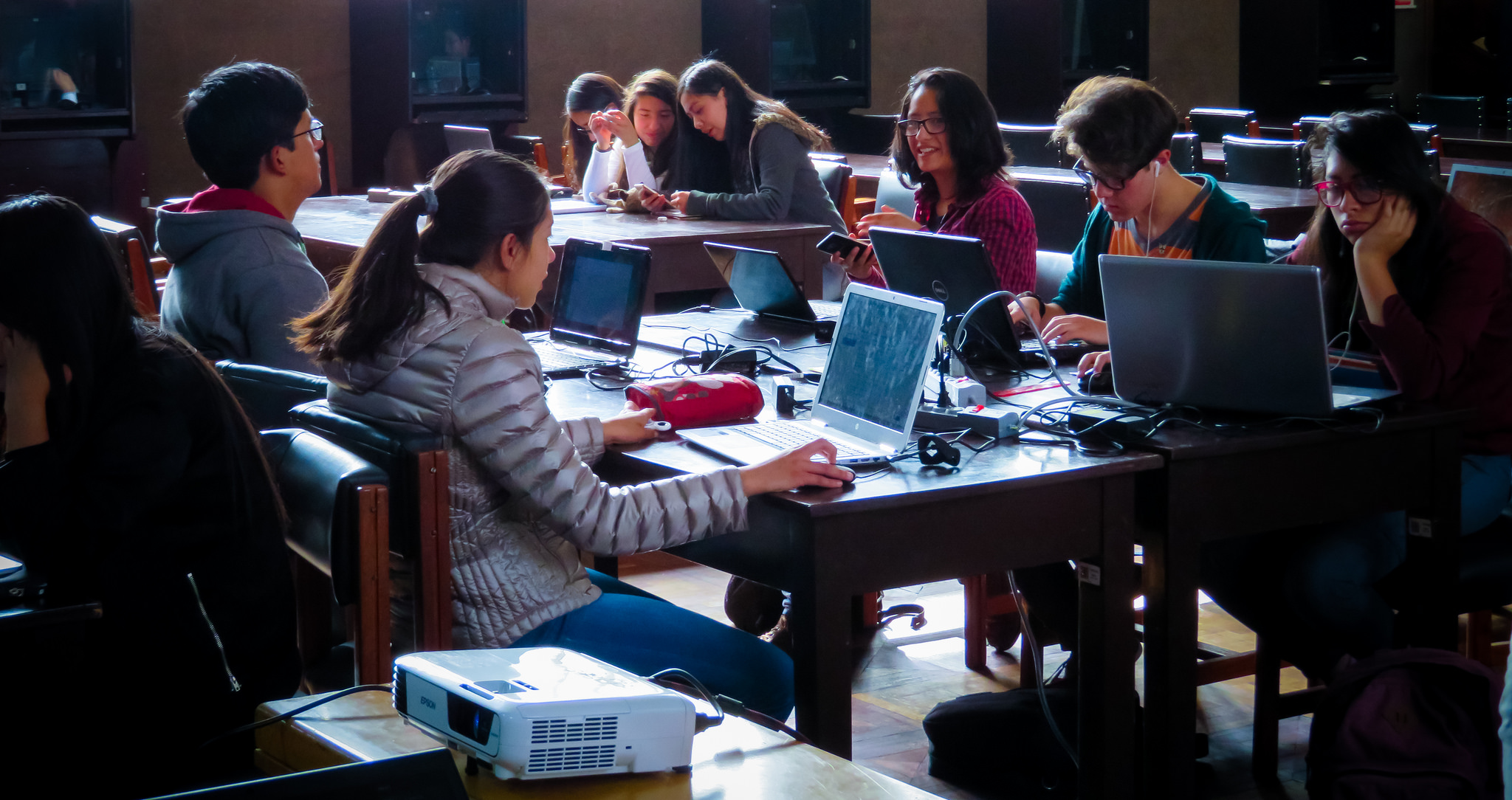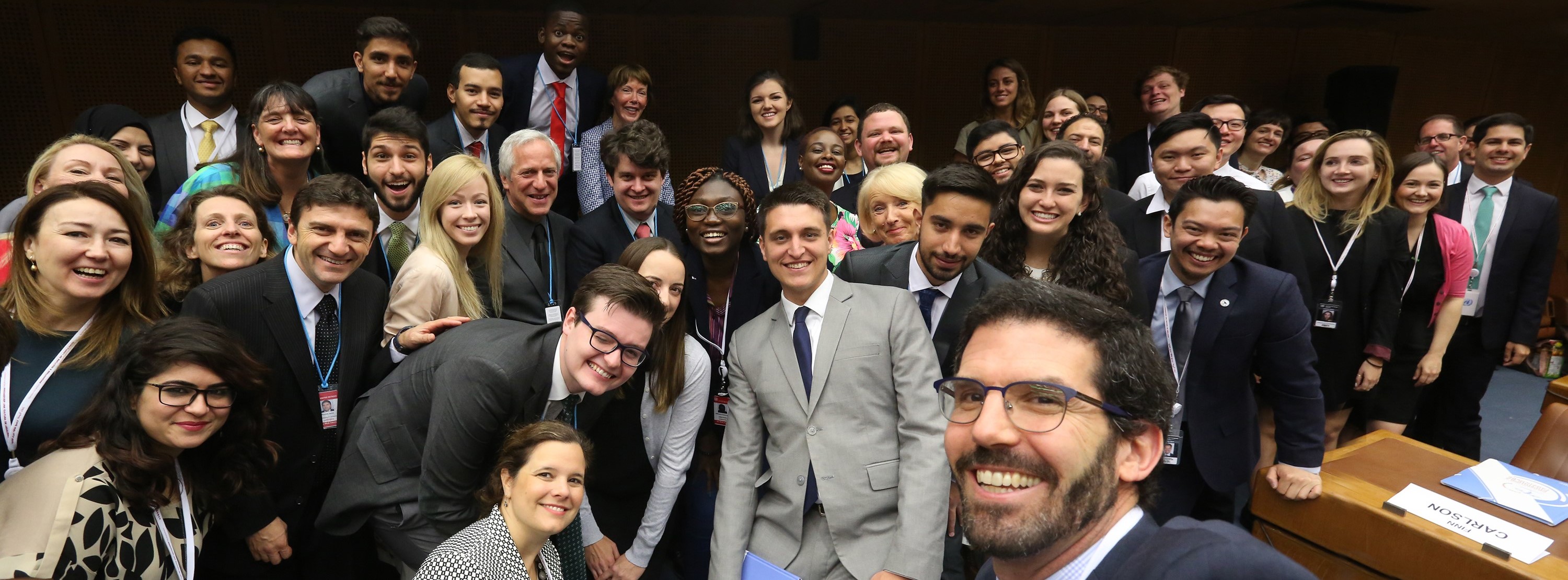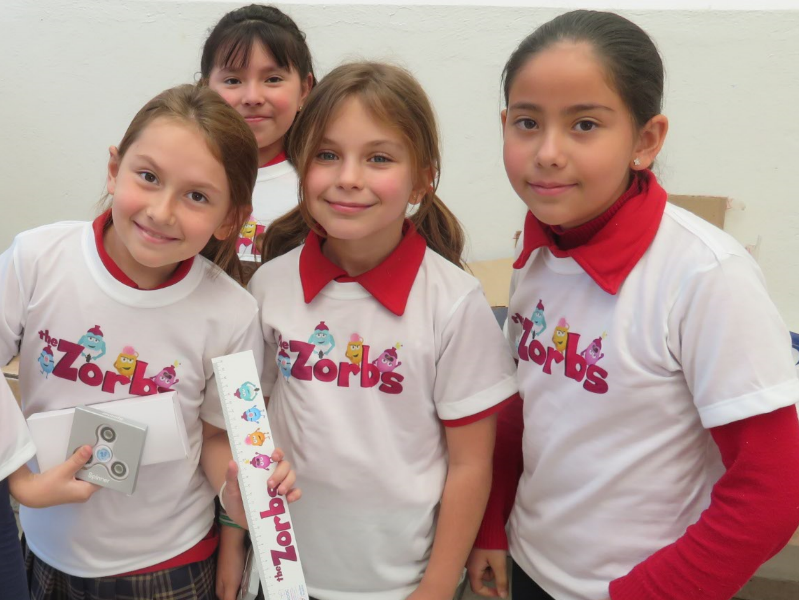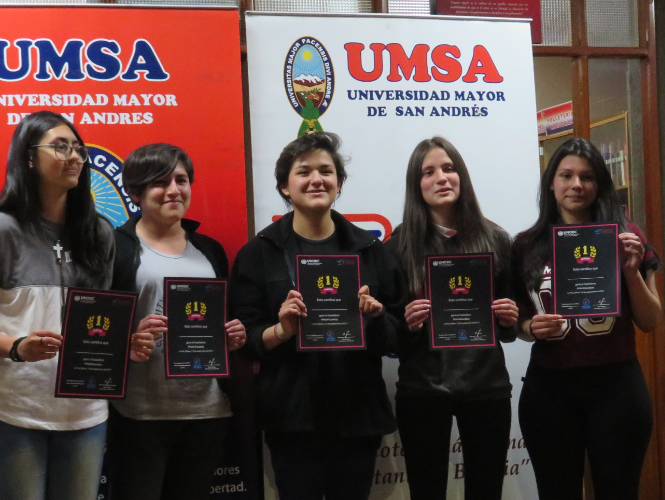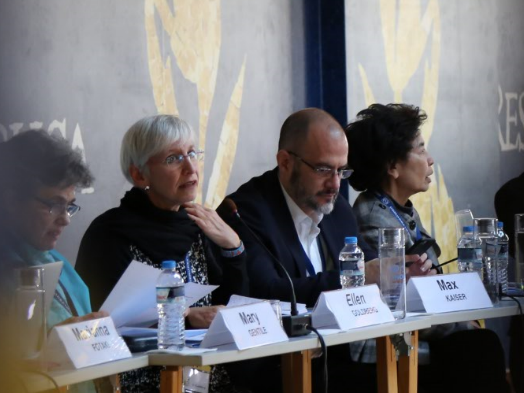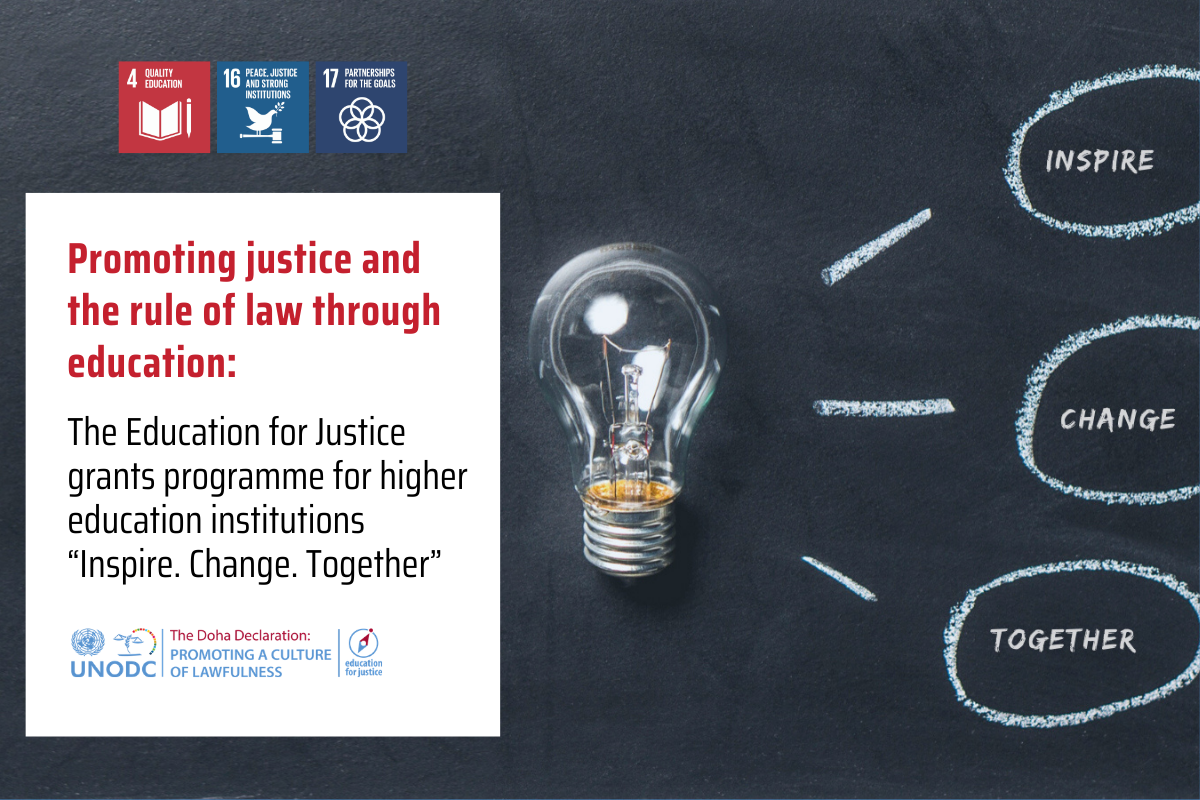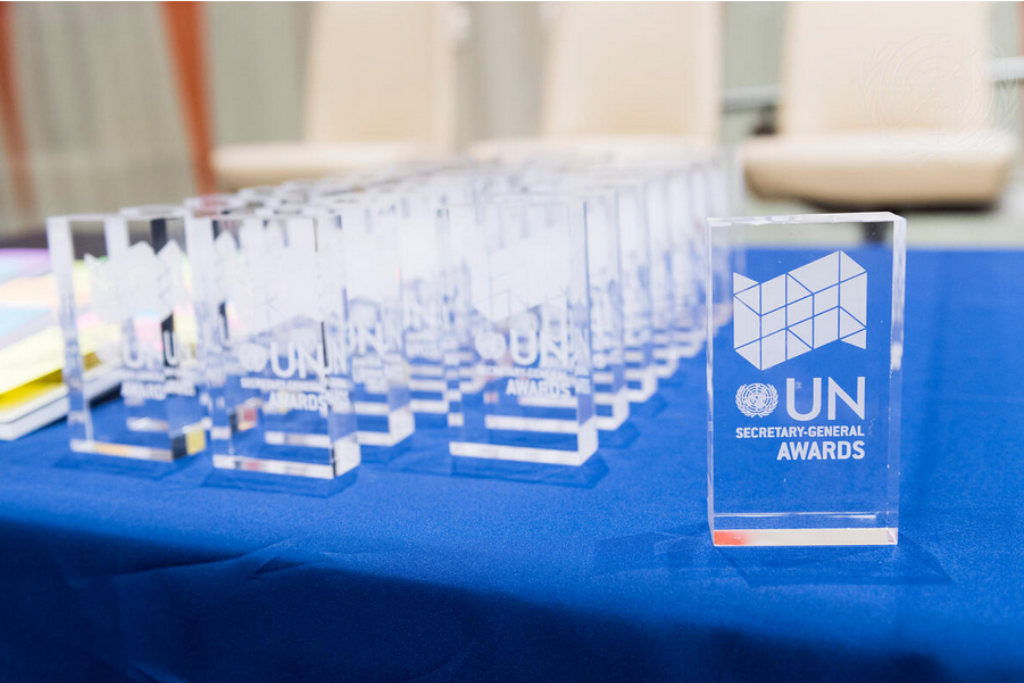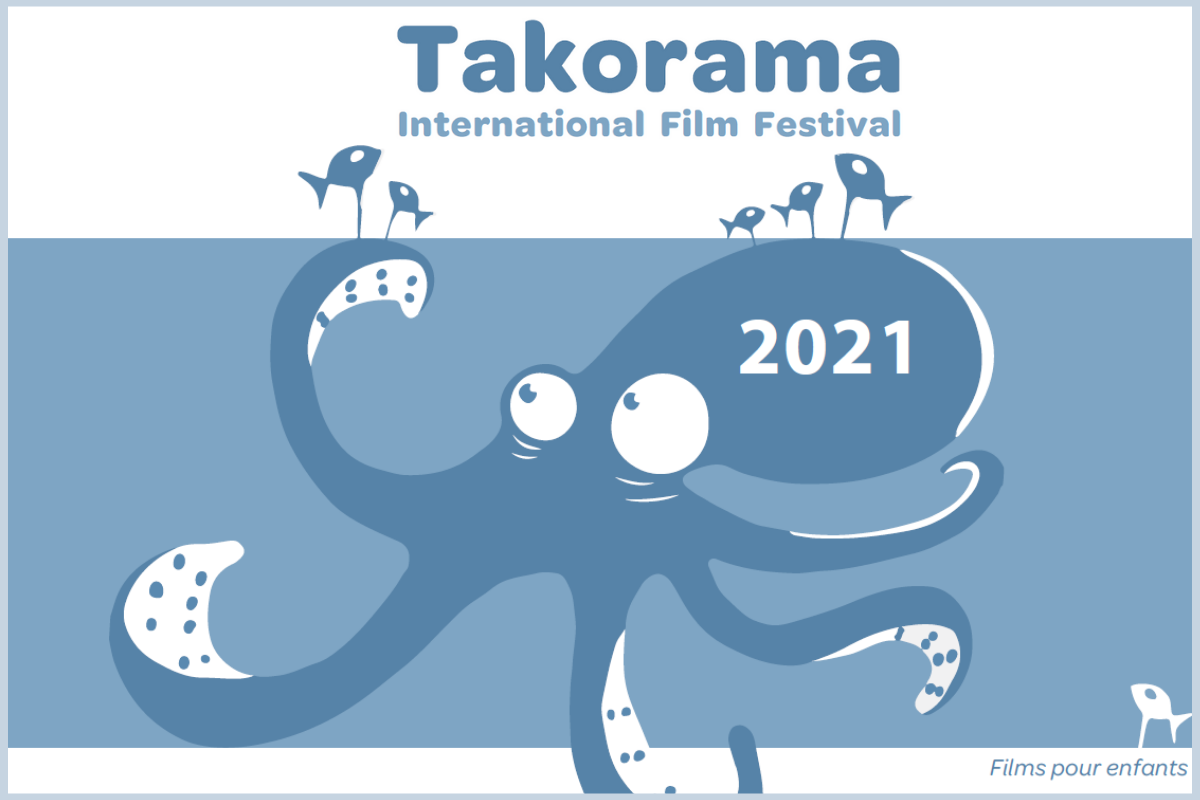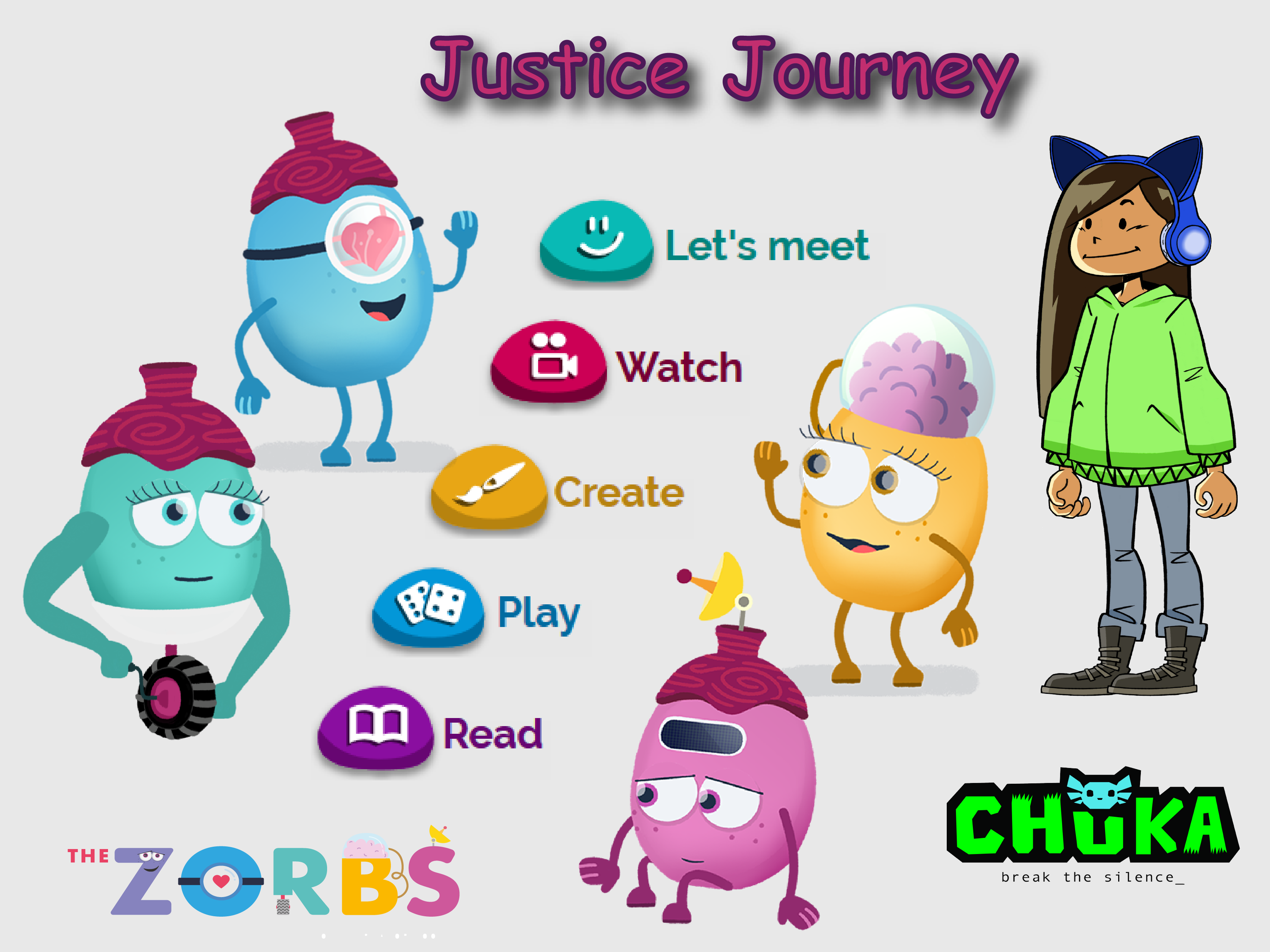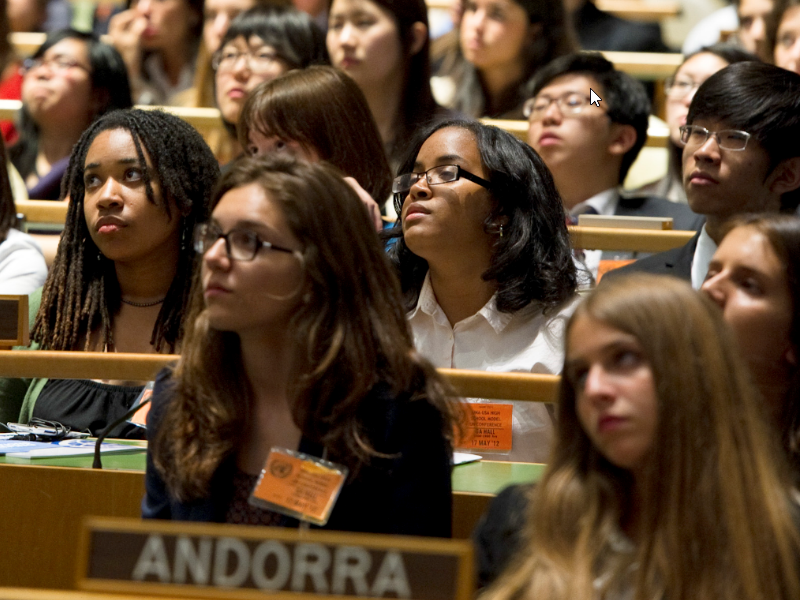Education for Justice
The Education for Justice (E4J) initiative seeks to prevent crime and promote a culture of lawfulness through education activities designed for primary, secondary and tertiary levels. These activities help educators teach the next generation to better understand and address problems that can undermine the rule of law and encourage students to actively engage in their communities and future professions in this regard. A set of products and activities for the primary and secondary levels have been developed in partnership with UNESCO.
Primary Education Materials
Learn more about the tools developed by E4J for primary education, including educational materials for teachers, parents, students and education policymakers.
Secondary Education Materials
Learn more about tools developed by E4J for secondary education, including materials for teachers, students and Model United Nations.
Tertiary Education Materials
Learn more about the 100+ university modules developed by E4J across UNODC mandate areas in consultation with academics from more than 550 universities in 114 countries.
E4J's grants help universities engage students on more advanced rule of law issues
The global pandemic has greatly affected education around the world, posing new challenges and exposing disparities even further. For Education for Justice (E4J), this was a year of redoubling efforts to ensure consistency in support to academics and educators on teaching rule of law and related topics. These creative and systematic efforts, building up on an already diverse portfolio of educational material and forming bridges between different stakeholders to advance the Sustainable Development Goals (SDGs), have earned E4J the Secretary General's 2020 Innovation Award.
TAKORAMA 2021 - online film festival for children and youth around the world
All the short films are silent (with music) and address the values of solidarity, acceptance, respect, empathy and sustainable development, which are also at the core of the E4J initiative. There are five categories of films for ages 3+, 6+, 9+, 12+ and 15+ and teachers are invited to register with their students to vote for their favourite film. Parents are also welcome to register their children.
Fun Corner
Here you find educational tools and materials developed by E4J and other relevant stakeholders for children aged 6 to 12 years. It is a space for kids to watch educational videos, create comic strips and play educational games.
Model United Nations
Model United Nations (MUN) conferences offer a popular way to learn about the United Nations' mandate areas and to give tomorrow's leaders an insight into negotiating at the international level. E4J developed a Resource Guide to support those who organize MUN conferences to incorporate issues from UNODC mandate areas into their conferences.
